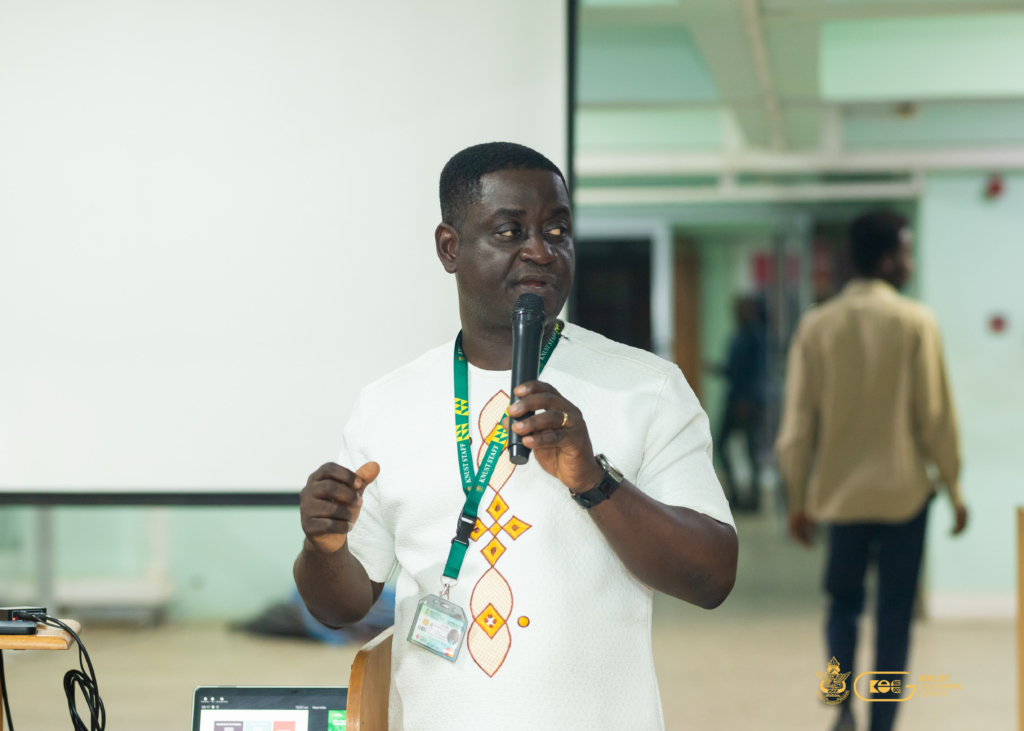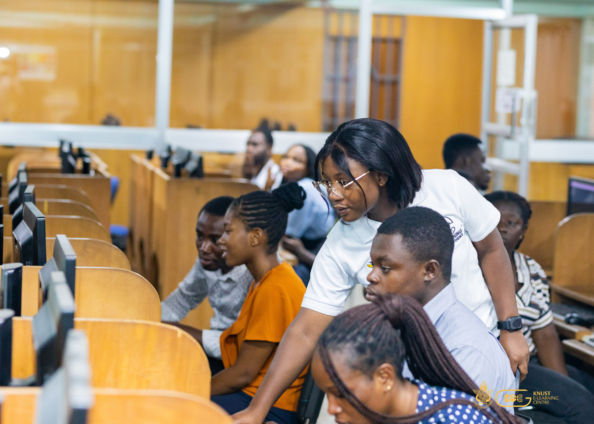
Audio By Carbonatix
Students in tertiary institutions worry face to face teaching is gradually becoming a drawback in accessing higher education.
Socio-economic background and geographical location have excluded some groups from learning in institutions offering exclusive in-person classes.
This is slowing down the progress of education.
In-person teaching and learning has been the traditional way of learning for decades.
However, as the student population increases in all tertiary institutions, lecturers and teaching assistants find it hard managing class sizes.
On the other hand, students disregard unfavorable weather conditions to attend lectures or submit assignments.
Both parties describe this as tedious and worrisome. Benedict Afriyie, is a student at the Kwame Nkrumah University of Science and Technology.
“In class, I am unable to hear the lecturer. Usually, the lecturers do not use microphones. Sometimes, the class is so huge you will not find a sitting place. There are times we walk all the way from our hostels to submit assignments,” he revealed.
Tertiary institutions struggle with space for lessons. Emmanuella Gidi, a student lives farther from the university.
She reveals some of her colleagues have missed examinations and class hours due to change of venues for lectures.
“I live at Boadi and come to Kotei for lectures daily. It is quite a distance. I wake up early and rush is. Getting a shuttle from Boadi to campus is a struggle. My colleagues and I missed lectures a few times,” she said.
Frank Boateng Agyemang, a student, is intimidated speaking in front of a class of over 200 students
This has limited his interaction and opportunity for valuable feedback.
“Questions are asked and you will see the supposed brilliant students answering fiercely. This makes us question our intelligence,” he revealed.
The E-Learning Centre of the Kwame Nkrumah University of Science and Technology seeks to open up education to more people by offering online learning courses
The Centre is tutoring Teaching Assistants in the university on the usage of online platforms for teaching and learning.
“They are going to offer teaching assistance to students who may be familiar with online platforms. This means they must always be a step ahead,” said Professor Eric Appau Asante, Director of KNUST E-Learning Centre.

Latest Stories
-
Former COCOBOD administration spent syndicated loans on themselves, not farmers – Inusah Fuseini
3 minutes -
Mahama vows to end export of raw mineral ores by 2030, shifts focus to local processing
21 minutes -
Mahama meets UN Chief, discusses African security & democracy.
29 minutes -
Livestream: Newsfile discusses cocoa crisis, galamsey complexity and election credibility in Ghana
42 minutes -
Ghana stops cocoa Smuggling by narrowing price gap with neighbours – COCOBOD CEO
46 minutes -
COCOBOD CEO admits pricing gap is costing Ghana cocoa sales
53 minutes -
Solomon Owusu blames NPP for cocoa crisis, backs government’s new reform agenda
1 hour -
‘Behind The Lens with Queen Liz’ explores the true meaning of Valentine’s Day, Love, Lust or Legacy?
3 hours -
‘I wanted to be an architect but ended up as a nurse’ – Diana Hamilton reveals
3 hours -
From wards to worship: Diana Hamilton reveals how nursing school shaped her destiny
4 hours -
Mahama demands binding deadlines for African reparations
4 hours -
This is not the time to settle political scores – Bawumia to government
6 hours -
5 definitive Valentine’s Day gifts to win your lover’s heart in Ghana
6 hours -
37% of SHS students exposed to drugs – Opare-Addo
6 hours -
NLC secures court injunction against striking tertiary unions
7 hours

